During the 2 days of November 23-24, the 16th International Scientific Conference on the East Sea "Orienting thinking, promoting standards" took place in Ha Long City (Quang Ninh) with 2 important introductory sessions, 1 special session and 7 main discussion sessions.
Through the opening remarks, leaders and senior officials from Indonesia, Australia, the UK, the EU, and Canada affirmed that the East Sea is a priority for countries, supporting the maintenance of a peaceful, stable, prosperous region, ensuring safety, security, and maritime navigation. The leaders of the countries emphasized the value of compliance with international law and encouraged increased cooperation.
The 16th International Scientific Conference on the East Sea took place in the context of the 30th anniversary of the 1982 United Nations Convention on the Law of the Sea (UNCLOS).
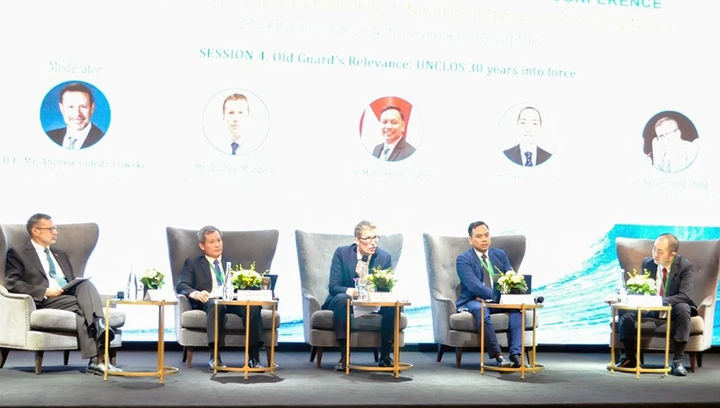
Discussion session “UNCLOS after 30 years: Still valid?”. (Photo: International Newspaper)
Judge of the International Tribunal for the Law of the Sea (ITLOS) Hidehisa Horinouchi affirmed the importance of UNCLOS. UNCLOS continues to evolve to regulate new issues such as the international seabed and area, fish stocks, conservation and sustainable use of marine biodiversity, and climate change.
To adapt to new problems, the Judge pointed out three ways: through implementing instruments, negotiating new agreements or relying on the interpretation of judicial bodies (through case law and through advisory opinions).
Legal experts believe that UNCLOS needs to be interpreted and applied in good faith. There are also opinions that to ensure UNCLOS, there should be the participation and commitment of major countries, including the US, and regional countries such as Cambodia should also ratify UNCLOS.
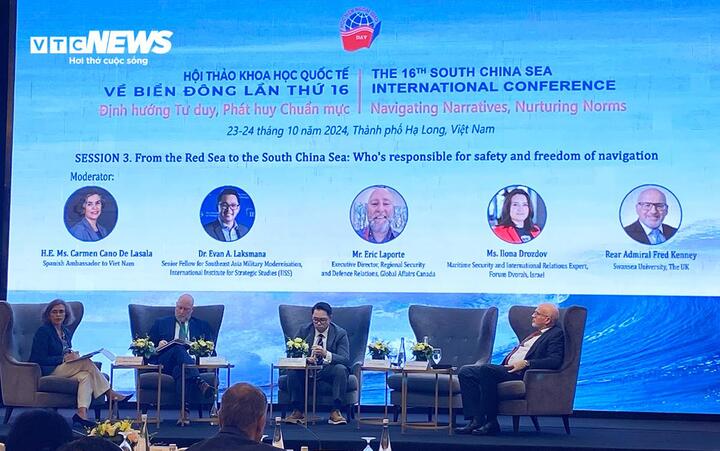
The 16th International Scientific Conference on the East Sea has 2 important introductory sessions, 1 special session and 7 main discussion sessions.
Assessing the implementation of the obligation not to use or threaten to use force, scholars are concerned about the increasing promotion of “gray zone” activities in the East Sea and the tendency to shift to a “dark” tone, towards “use of force”; determining that the use of force must be considered based on international law.
Some opinions say that although international law still has “loopholes”, it has resolved disputes and controlled “gray zone” activities in the East Sea. Most opinions suggest that countries need to enhance common understanding and reach consensus, ensure transparency, comply with international law and resolve disputes by peaceful means through negotiations and without threatening or using force, and must limit any actions that may complicate disputes.
Scholars say new technologies such as artificial intelligence (AI) could change the way ships operate in the sea; leading to uncontrollable cybersecurity challenges and risks, disrupting the balance.
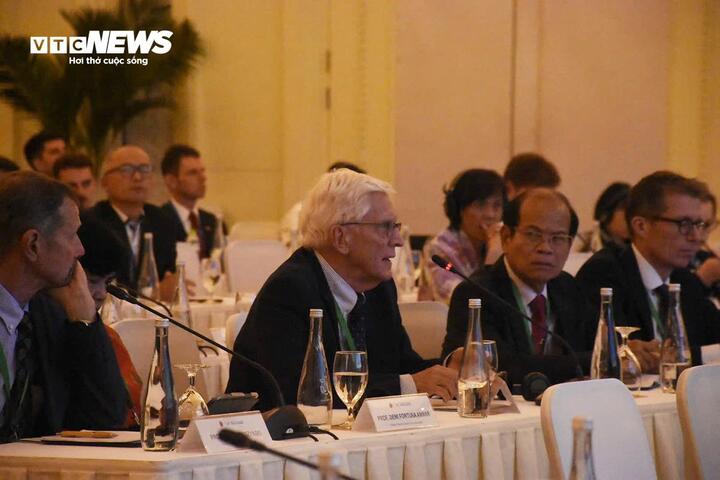
The 16th International Scientific Conference on the East Sea "Orienting thinking, promoting standards" was a great success.
However, according to many opinions, the economic and environmental benefits, reduced fuel consumption, and improved operational efficiency of new technology should not be denied. It is important that subjects use technology responsibly and safely; it is also necessary to develop regulations to ensure effective operation of technology while helping to prevent the risk of an AI arms race, or even the use of AI in conflict.
Discussing policy options, most scholars support diplomatic and cooperative measures to maintain regional peace and stability and address regional and global challenges, helping to achieve sustainable development goals.
Some regional scholars believe that diplomacy will be more effective when combined with defense. Scholars from Europe said that, in the face of the regional security situation, more and more European countries are taking positive and effective actions in the East Sea despite their limited capacity. This involvement affects defense procurement programs, integrating modern technology, helping EU countries possess powerful naval forces in the future.
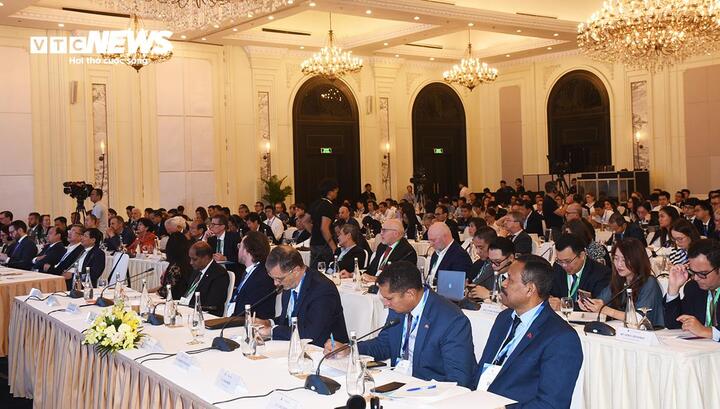
Conference scene.
In his closing speech at the workshop, Dr. Nguyen Hung Son - Deputy Director of the Diplomatic Academy affirmed that in the context of a world with many fluctuations with geopolitical shifts; competition expanding to vision and viewpoints on joint development of science and technology, there are still many tools to help manage tensions: diplomacy, international law and common commitment and peaceful cooperation. The role of ASEAN is more important than ever, ASEAN needs to continue to demonstrate its central role in promoting compliance and strengthening common standards to help ensure peace and stability in the region.
On the sidelines of the Conference, a special session titled “Young Generation and Maritime Security” was also held with young global scholars attending the Young Leaders Program of the International Conference on the East Sea. The program aims to help build and nurture a generation of young international scholars who can make positive contributions to peace, stability and cooperation in the region in the future.
Source: https://vtcnews.vn/luat-bien-quoc-te-tiep-tuc-phat-trien-de-dieu-chinh-van-de-moi-ar903688.html


![[Photo] General Secretary To Lam receives First Deputy Secretary General of the African National Congress (ANC) of South Africa](https://vphoto.vietnam.vn/thumb/1200x675/vietnam/resource/IMAGE/2025/5/20/bb2999907e1245d5b4c7310a890d8201)
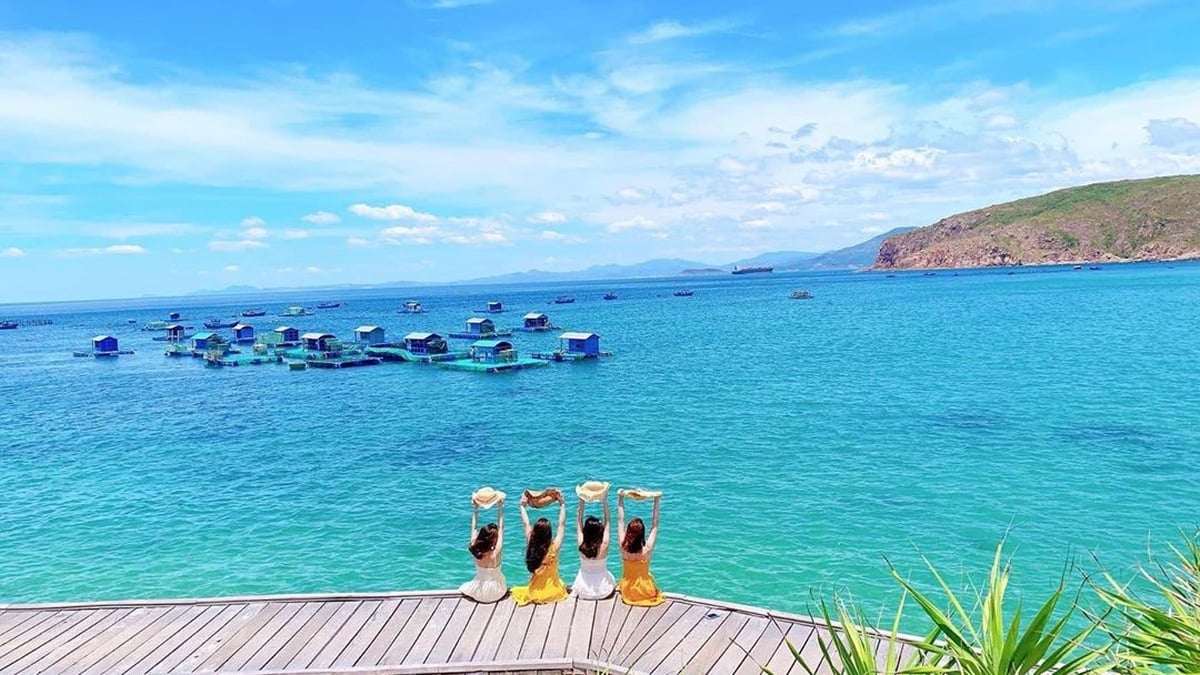
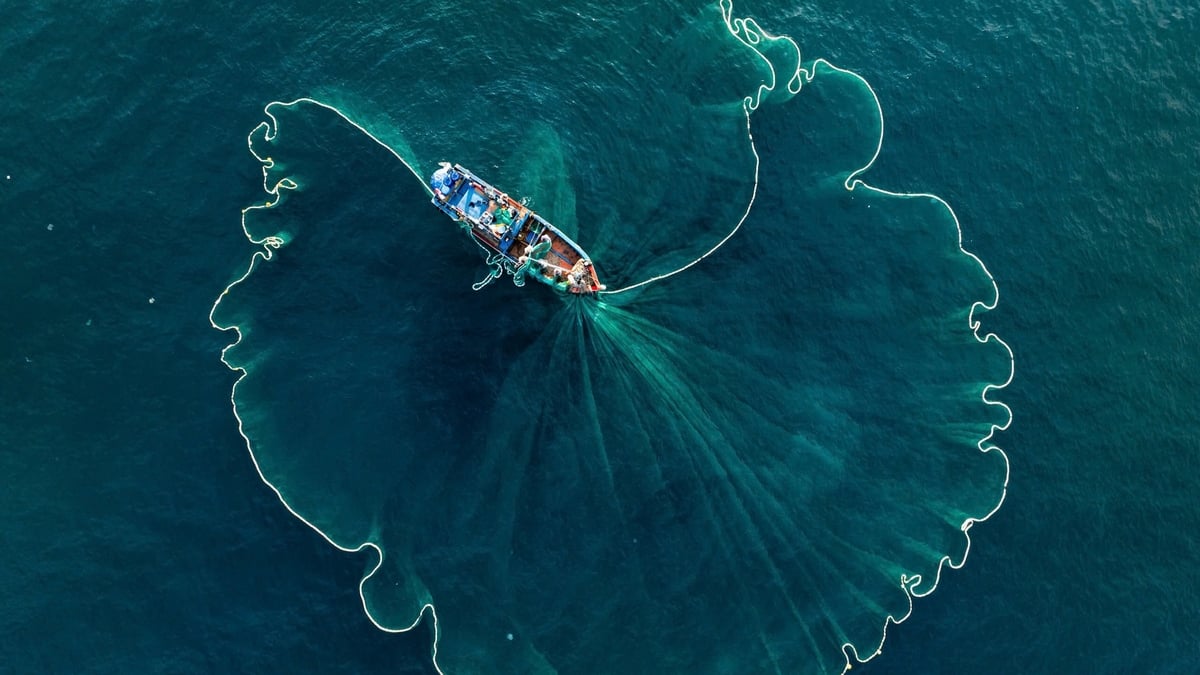



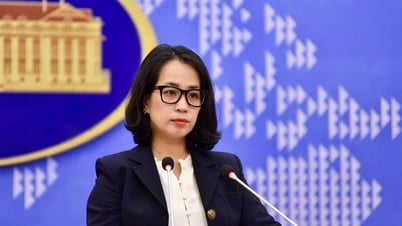



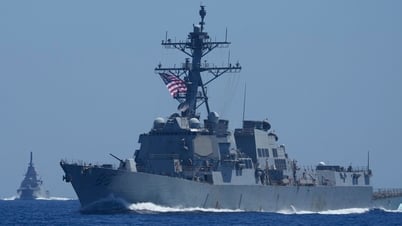





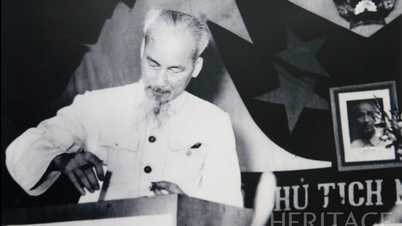



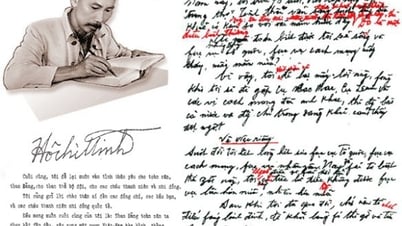
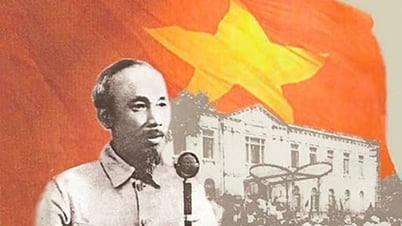
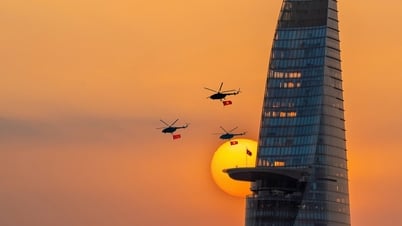

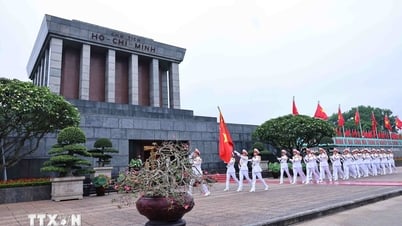










![[Photo] Award ceremony for works on studying and following President Ho Chi Minh](https://vphoto.vietnam.vn/thumb/1200x675/vietnam/resource/IMAGE/2025/5/20/a08ce9374fa544c292cca22d4424e6c0)
![[Photo] Vietnamese shipbuilding with the aspiration to reach out to the ocean](https://vphoto.vietnam.vn/thumb/1200x675/vietnam/resource/IMAGE/2025/5/20/24ecf0ba837b4c2a8b73853b45e40aa7)






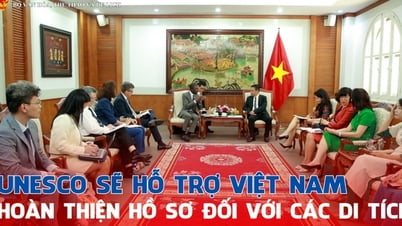

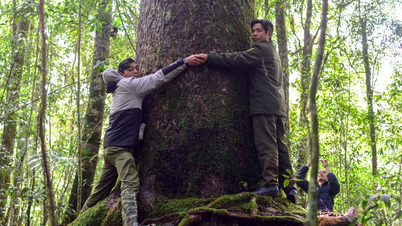
















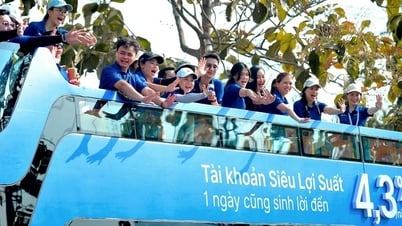
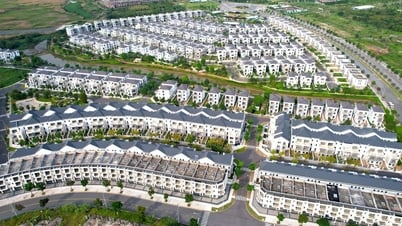


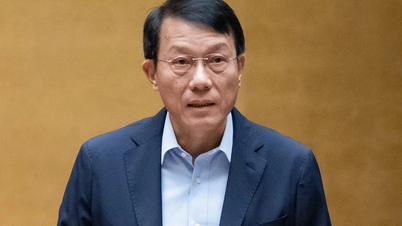





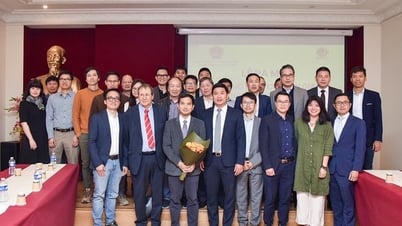

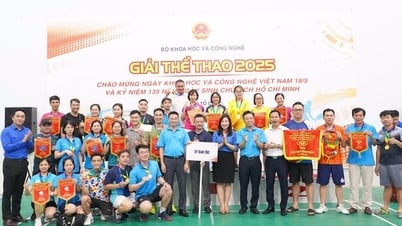


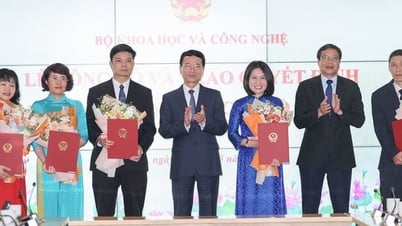
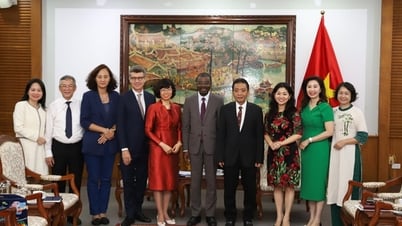




















Comment (0)